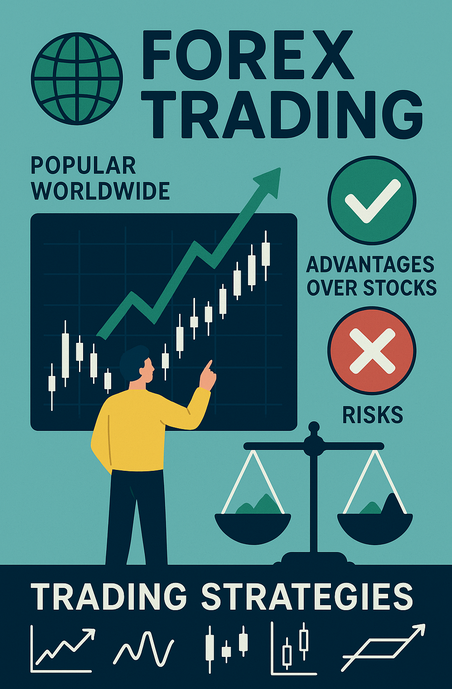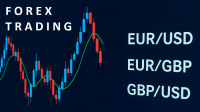Forex trading involves speculating on the price fluctuations between different currency pairs, such as EUR/USD or GBP/JPY. Traders buy one currency while simultaneously selling another, aiming to profit from market movements.
Why is Forex Trading So Popular Worldwide?
The popularity of forex trading can be attributed to several key factors:
- 24/5 Market Accessibility – Unlike stock markets that operate during specific hours, forex trading is available 24 hours a day, five days a week. This allows traders from different time zones to participate at their convenience.
- High Liquidity – The forex market is highly liquid, meaning transactions are executed quickly, and traders can enter or exit positions without significant price fluctuations.
- Leverage Opportunities – Many brokers offer leverage, allowing traders to control large positions with a relatively small amount of capital. This can magnify potential profits but also increase risk.
- Lower Transaction Costs – Forex trading typically has lower fees and commissions compared to stock trading, making it attractive for retail traders.
- Ease of Market Entry – With minimal initial investment requirements, anyone can start trading forex using an online brokerage account.
- Diverse Trading Opportunities – The forex market provides opportunities to profit in both rising and falling markets, unlike stocks, which typically rely on an asset appreciating in value.
Advantages of Forex Trading Over Stocks
While both forex and stock trading have their own appeal, forex offers several advantages over stock trading:
- Greater Market Liquidity – Forex is the most liquid market, ensuring quick order execution and minimal price manipulation.
- Lower Initial Investment – Unlike stock trading, which may require significant capital, forex traders can start with a small deposit.
- No Central Exchange – Forex operates over-the-counter (OTC), meaning prices are less susceptible to manipulation by a central entity.
- More Trading Opportunities – With constant price movements in the forex market, traders have more chances to find profitable trades compared to stocks, which can remain stagnant for long periods.
- Flexible Leverage Options – Forex traders can take advantage of higher leverage compared to stock traders, potentially increasing profits.
- Less Market Influence by Individual Companies – Stock prices can be influenced by company earnings, management changes, or corporate scandals, whereas forex markets are primarily affected by macroeconomic factors.
Dangers of Forex Trading
Despite its advantages, forex trading also carries risks that traders must be aware of:
- High Volatility – Forex prices can fluctuate dramatically within short periods, leading to significant gains or losses.
- Leverage Risks – While leverage can amplify profits, it can also lead to substantial losses, even exceeding the initial investment.
- Emotional Trading – The fast-paced nature of forex can lead to impulsive decisions, which often result in losses.
- Market Complexity – Forex trading requires an understanding of economic indicators, geopolitical events, and central bank policies, which can be overwhelming for beginners.
- Unregulated Brokers – Some forex brokers operate with little to no regulation, increasing the risk of fraud or unethical practices.
Popular Forex Trading Strategies
To succeed in forex trading, traders often use various strategies, including:
- Scalping – Involves making multiple small trades throughout the day to take advantage of minor price movements.
- Day Trading – Traders open and close positions within a single trading day, avoiding overnight risks.
- Swing Trading – Focuses on capturing price swings over days or weeks.
- Trend Trading – Involves identifying and trading in the direction of a prevailing market trend.
- Breakout Trading – Traders enter positions when the price moves beyond a defined resistance or support level.
- Carry Trading – Involves profiting from interest rate differentials between two currencies in a pair.
Conclusion
Forex trading has gained global popularity due to its accessibility, liquidity, and potential for profit. However, it carries significant risks, especially for inexperienced traders. By using well-researched trading strategies and risk management techniques, traders can improve their chances of success in this dynamic market.








